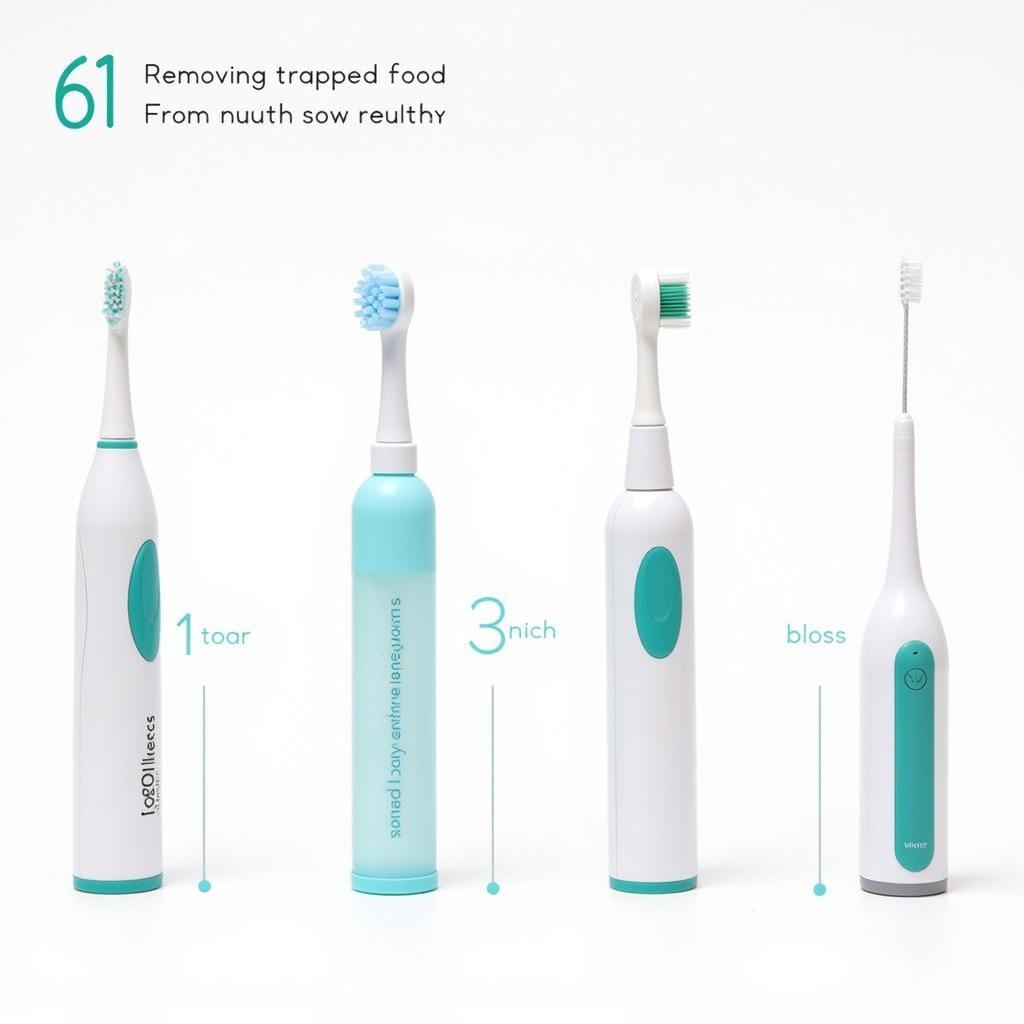That annoying feeling of food trapped between your teeth? We’ve all been there. It’s distracting, uncomfortable, and sometimes even painful. This comprehensive guide explores everything you need to know about Food Trap In Teeth, from its common causes to effective prevention and removal techniques.
Why Does Food Get Stuck in My Teeth?
Several factors contribute to food trap in teeth. Gaps or spaces between teeth are prime real estate for stray food particles. These gaps can be natural or result from tooth decay or gum disease. Crooked or misaligned teeth can also create hard-to-reach areas where food can easily become wedged. Dental work, such as fillings, crowns, or bridges, can sometimes create uneven surfaces that trap food if not perfectly fitted. food trap teeth
Even the type of food you eat plays a role. Stringy foods like meat and fibrous vegetables are notorious culprits. Sticky foods like caramel and toffee can cling to teeth and create a haven for food particles.
Effective Ways to Remove Food Stuck in Teeth
So, what can you do when that pesky piece of spinach decides to take up residence between your molars? First and foremost, resist the urge to use anything sharp or abrasive, like a toothpick or corner of a credit card. These can damage your gums and teeth, leading to more serious dental problems.  Dental floss and interdental brush for removing trapped food
Dental floss and interdental brush for removing trapped food
Instead, reach for dental floss. Gently guide the floss between your teeth, using a sawing motion to dislodge the trapped food. An interdental brush, specifically designed to clean between teeth, can also be highly effective. For stubborn particles, a water flosser can provide a more forceful yet gentle stream of water to flush out debris. food getting stuck in teeth
Preventing Food from Getting Stuck: A Proactive Approach
While knowing how to remove trapped food is essential, prevention is always the best medicine. Maintaining good oral hygiene is crucial. Brush your teeth twice a day for two minutes each time, focusing on all surfaces of your teeth. Floss daily to remove plaque and food particles from between teeth.
Regular dental checkups are also vital. Your dentist can identify and address any potential issues, such as cavities or gum disease, that can contribute to food trap. They can also advise you on the best tools and techniques for maintaining optimal oral health. foods to eat after dental bridge
“Regular dental visits are key,” says Dr. Emily Carter, DDS, “not just for cleaning, but for early detection of any dental issues that can exacerbate food trap.”
What if Food Gets Stuck and Causes Pain?
Sometimes, trapped food can lead to pain or discomfort. This could be a sign of a more serious problem, such as an infection or abscess. If you experience pain, swelling, or bleeding, it’s crucial to see a dentist as soon as possible. food stuck between teeth pain Don’t try to treat it yourself; professional intervention is necessary. “Ignoring persistent pain from trapped food can lead to more complicated and costly treatments down the line,” warns Dr. Michael Davis, DMD.
How to Remove Food Stuck in a Wisdom Tooth Hole?
Wisdom teeth extractions often leave behind small holes where food can easily get trapped. how to remove food stuck in wisdom tooth hole This requires extra care and attention to prevent infection. Your dentist will likely provide specific instructions on how to clean the area, which may involve rinsing with salt water or using a special syringe.
In conclusion, dealing with food trap in teeth is a common experience. By understanding its causes and adopting proactive prevention and removal strategies, you can maintain a healthy and comfortable smile. Remember, regular dental checkups and consistent oral hygiene are your best allies in the fight against food trap in teeth.
FAQ
- Is it bad to use a toothpick to remove food from my teeth? Yes, toothpicks can damage your gums and teeth.
- What should I do if I can’t remove food with floss? Try an interdental brush or a water flosser.
- Why does food always get stuck in the same spot? This could indicate a gap or misalignment that needs professional attention.
- Can trapped food cause bad breath? Yes, trapped food can decay and contribute to bad breath.
- How often should I floss? Daily flossing is recommended.
- What foods should I avoid if I have problems with food trap? Limit sticky, stringy, and fibrous foods.
- Can braces make food trap worse? Yes, braces can create more areas for food to get trapped.
Have more questions? Contact us! Phone: 02437655121, Email: minacones@gmail.com Or visit us at: 3PGH+8R9, ĐT70A, thôn Trung, Bắc Từ Liêm, Hà Nội, Việt Nam. We have a 24/7 customer service team.